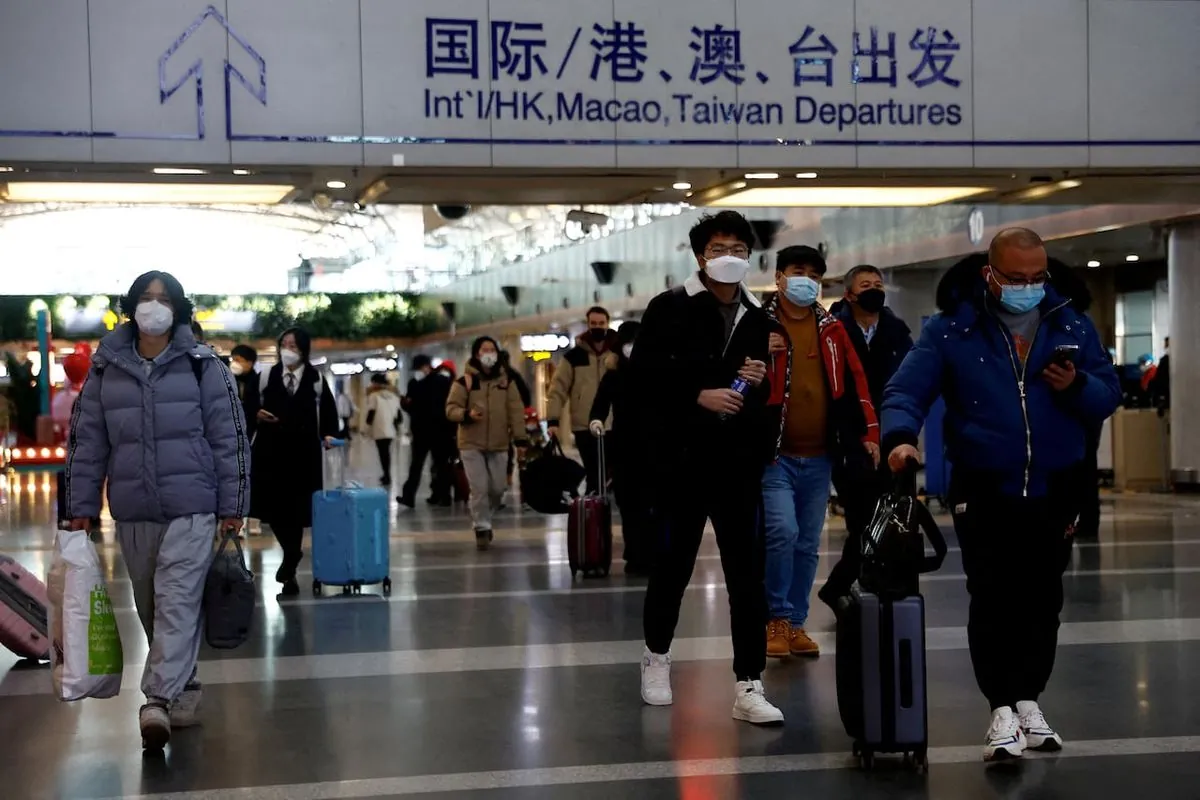China Implements 6-Month Mpox Monitoring as WHO Declares Global Emergency
China initiates mpox screening at borders following WHO's global health emergency declaration. New measures target individuals and goods from affected areas, aligning with China's Category B disease classification.

In response to the World Health Organization's (WHO) recent declaration of mpox as a global health emergency, China has announced a six-month monitoring program for individuals and goods entering the country. This decision, revealed on August 16, 2024, aims to prevent the spread of the virus within Chinese borders.
The Chinese customs administration has issued guidelines for the new monitoring measures. Individuals arriving from countries experiencing mpox outbreaks are required to self-declare if they have been in contact with mpox cases or are exhibiting symptoms. Additionally, vehicles, containers, and goods originating from affected areas will undergo sanitization procedures.

This proactive approach aligns with China's previous classification of mpox as a Category B infectious disease in 2023. This categorization allows officials to implement emergency measures such as restricting gatherings, suspending work and school, or sealing off areas in the event of an outbreak. Other diseases in this category include COVID-19, AIDS, and SARS.
The WHO's decision to declare mpox a global public health emergency for the second time in two years came on August 14, 2024. This declaration was prompted by an outbreak in the Democratic Republic of Congo that has spread to neighboring countries.
Mpox, first discovered in 1958 in a colony of research monkeys, is caused by the monkeypox virus, which belongs to the same family as smallpox. The first human case was recorded in 1970 in the Democratic Republic of Congo. The disease is endemic in parts of Central and West Africa, with two main strains identified: the Congo Basin strain and the West African strain.
Transmission of mpox occurs through close contact between individuals. The virus can also spread from animals to humans through bites, scratches, or consumption of infected meat. Symptoms typically include flu-like manifestations and characteristic pus-filled lesions on the body. The incubation period usually ranges from 6 to 13 days but can extend up to 21 days.
While generally mild, mpox can be fatal in rare cases, with fatality rates ranging from 1% to 10% depending on the strain. Symptoms typically last 2-4 weeks, and unlike smallpox, mpox causes lymph node swelling. The lesions progress through four stages: macular, papular, vesicular, and pustular.
It's worth noting that vaccines developed for smallpox provide some protection against mpox. The WHO officially changed the name from monkeypox to mpox in November 2022 to reduce stigma associated with the disease.
As China implements these new monitoring measures, the global health community continues to work towards containing and managing the spread of mpox, highlighting the ongoing challenges in international disease control and prevention.
"The WHO declares mpox a global public health emergency due to the outbreak in the Democratic Republic of Congo and its spread to neighboring countries."


































